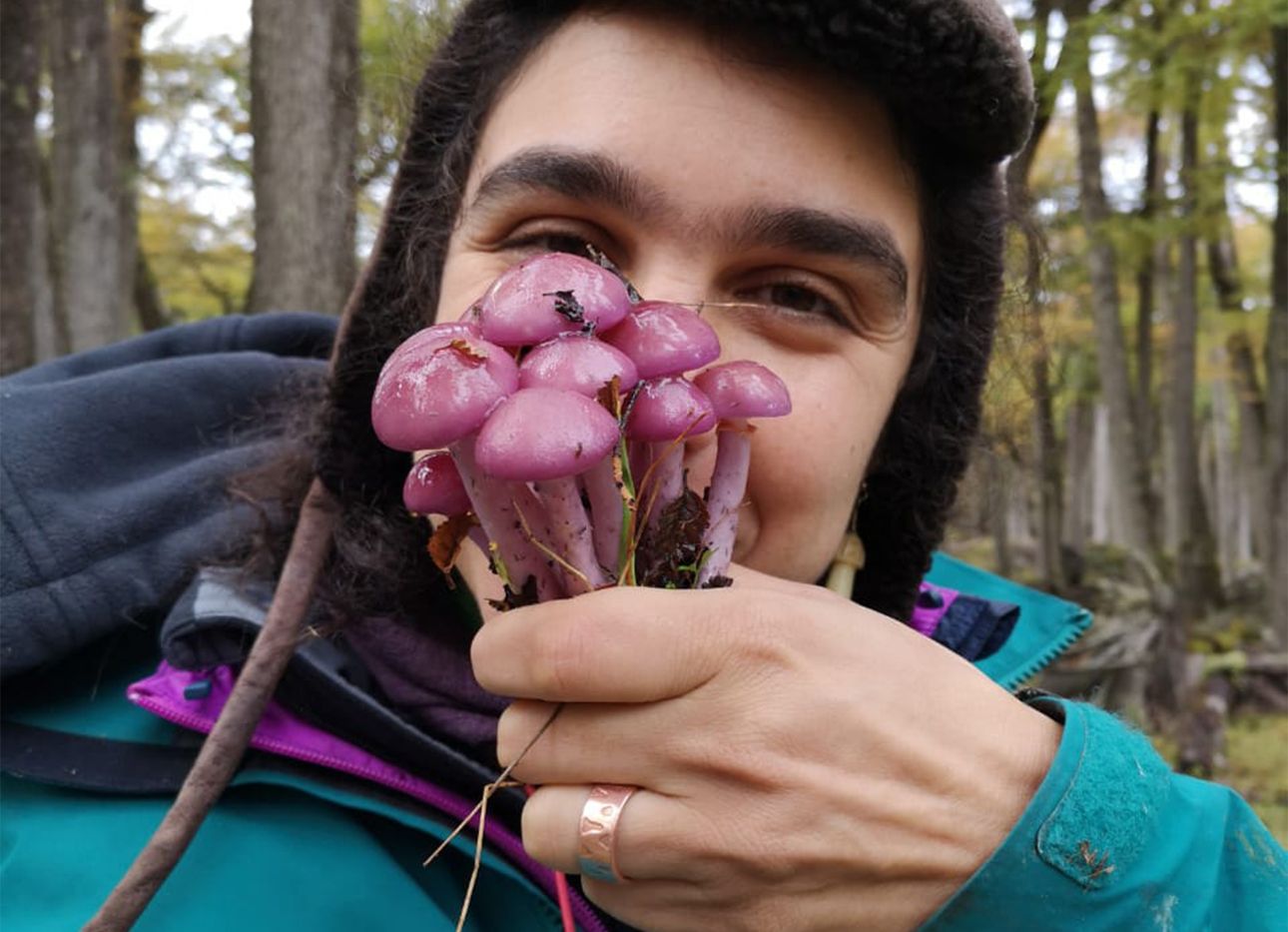
How Fungi Can Save the World
In the late ’90s, at age 19, Giuliana Furci was searching for foxes on the Chilean island of Chiloé when she stumbled upon a fungus—large and orangey-red—that would change her life. The encounter prompted Furci to seek out more information about the field of mycology, but she found herself faced with a scarcity of resources in her native Chile: the internet was in its nascent years, and Furci was unable to find any local field guides on fungi; laws to protect them from overharvesting, deforestation, and land exploitation were all but absent. She asked a friend in the United States to ship her a few books by Paul Stamets, an American mycologist who has written extensively on fungi cultivation for edible and medical purposes. Upon its receipt, Furci began to explore the fungi kingdom, and has never looked back.
Furci has since become the first female field mycologist in Chile and, in 2012, founded the Fungi Foundation, the first N.G.O. dedicated to promoting and preserving fungi—a categorization of life on Earth that has only been widely accepted as independent from the plant kingdom in the last several decades. (Fungi have distinct physical, chemical, and genetic traits that set them apart from plants and other eukaryotes. For example, their cell walls are made from chitin, not cellulose, and they absorb nutrients from other organisms in lieu of making their own food, unlike plants.) The organization, which is based in Brooklyn, offers a robust global calendar of initiatives and events. It recently released Let Things Rot, a documentary directed by Mateo Barrenengoa about the importance of allowing natural cycles of decomposition to unfold, and mounted a three-day digital summit hosted by Louie Schwartzberg, director and co-producer of the Netflix film Fantastic Fungi, with speakers that included Michael Pollan, Deepak Chopra, and Merlin Sheldrake (who was the guest on Ep. 44 of our At a Distance podcast).
Other activities include recommending public policy geared towards the conservation of fungi conservation—thanks to the foundation’s efforts, Chile became the first country to include the fungi kingdom in its environmental legislation in 2013—as well as addressing the issue through research and education. It’s currently working on an international mycological school program that teaches students about fungi alongside the plant and animal kingdoms, and underscores fungi’s role as an inextricable link between life forms.
But the foundation’s work isn’t merely to raise awareness about a subject that’s captured Furci’s attention. The need for a more concerted focus on fungi has been mounting, particularly due to the significant role the organisms can play in supporting planetary health. They’re the carbon reservoirs of trees, and multiple studies have concluded that their protection is crucial to keeping carbon dioxide out of the earth’s atmosphere. Yet of all the fungi species out there—somewhere between one and five million, by some estimates, as the organisms’ global diversity is not yet fully understood—only a few hundred of them have had their conservation priority assessed on the International Union for Conservation of Nature's Red List of Threatened Species. Furci believes this speaks to the distinct challenges of protecting fungi. “Their conservation is fundamentally different because fungi can’t be separated from their habitats very easily,” she says, noting that huge numbers of them grow in symbiosis with living trees. “To conserve a fungus, you need to conserve its habitat.” Thanks to her endeavors, she’s demonstrating the urgency, and the creativity, needed to do exactly that.